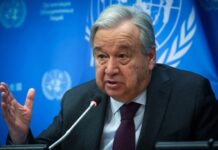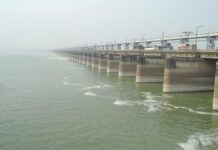Dailynewsun Desk:
The EU has urged pharmaceutical firm AstraZeneca to supply it with more doses of its Covid-19 vaccine from UK plants, amid a row over shortages.
The company has infuriated the bloc by saying it can deliver only a fraction of the doses it promised for the first quarter of the year, reports BBC.
It blames production issues at European plants, but the EU says doses made elsewhere should make up the shortfall. The EU has been criticised for the slow rollout of its vaccinations.
A confidentiality clause binds AstraZeneca from releasing the details of its deal with the bloc, but the company reportedly said last week that the EU would get 60% fewer doses than promised for January-March 2021.
Earlier on Wednesday, an EU official said that AstraZeneca had pulled out of the meeting, but the company has since insisted it will attend.
Pfizer/BioNTech, which has an even bigger vaccine-production deal with the EU, is also experiencing delays. French drug maker Sanofi has announced that it will help produce 125 million doses of the Pfizer/BioNTech jab by the end of the year.
The company will allow Germany-based BioNTech to use its facilities in Frankfurt from July, Sanofi said in a statement, having delayed the development of its own vaccine.
Pfizer says its agreement with Sanofi is just one of several efforts it is making to increase supply by expanding manufacturing facilities, and adding suppliers and contract manufacturers to its supply chain.
What is the EU complaining about?
At a news conference, EU Health Commissioner Stella Kyriakides said UK factories, which have not experienced problems, were part of its deal with the company and had to deliver.
“The 27 European Union member states are united that AstraZeneca needs to deliver on its commitments in our agreements,” she said.
What are the supply problems?
The EU signed a deal with AstraZeneca in August for 300 million doses, with an option for 100 million more, but the company has reported production delays at two plants, one in the Netherlands and one in Belgium.
Mr Soriot said production was “basically two months behind where we wanted to be”. Italy was among the countries threatening to sue over the delays.
What about the UK?
The UK did not take part in the EU vaccine scheme, although it could have done until the end of 2020, while it was still in the Brexit transition period.
At the time, the government said it was opting out because it felt it wouldn’t be allowed to continue its own negotiations with potential suppliers and wouldn’t have a say on the price, volume and date of possible deliveries.
The UK was the first country in the world to approve the Pfizer/BioNTech vaccine (and rolled it out several weeks before the EU). The UK has also approved the Oxford/AstraZeneca vaccine and the Moderna vaccine.





























